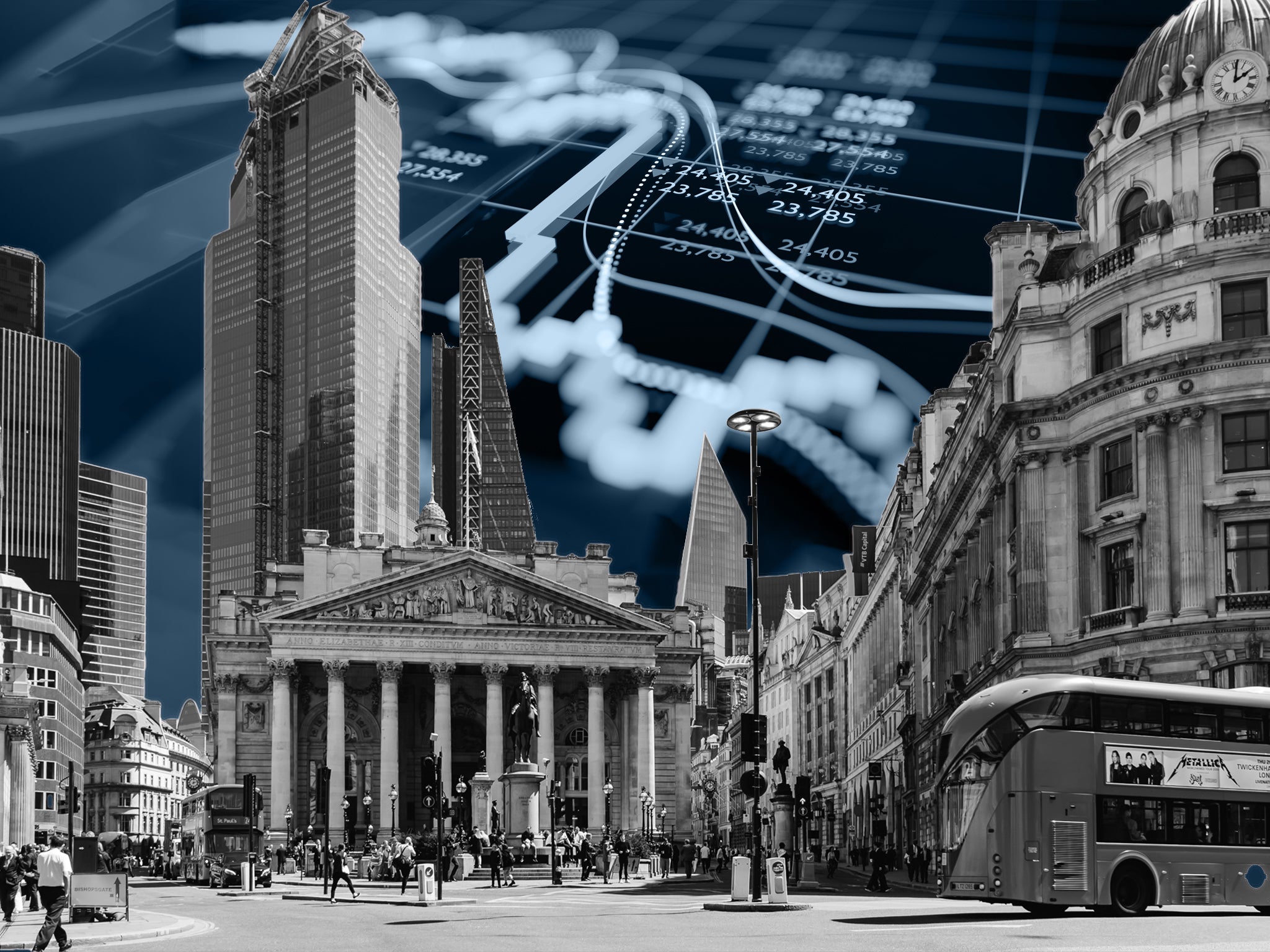The Bank of England has confirmed the Tory leadership race as an irrelevant sideshow
Their juvenile ‘my tax cuts are bigger than yours’ competition leaves the Tories fiddling while Rome burns, writes Andrew Grice


The Bank of England’s dark warning about a recession and longer than expected inflation crisis was much worse than our politicians had counted on, and will have profound implications for the next general election.
The gloomy forecast exposes the Conservatives’ leadership election as the largely irrelevant sideshow it is. Their juvenile “my tax cuts are bigger than yours” competition leaves the Tories fiddling while Rome burns.
There have been precious few specific measures to help struggling families through the coming storm. Rishi Sunak has promised to temporarily scrap VAT on domestic energy bills and Liz Truss the same for the green levies. But these are a drop in the bucket for families facing energy charges of £3,500 a year from October and a record 3.7 per cent fall in household disposable income over the next two years.
Even after the Bank’s warning, the two candidates preferred to indulge in their usual point-scoring in last night’s Sky News debate. Truss insisted the recession was not inevitable, doubling down on her proposed tax cuts, even though they would provide most help to the better off and big business. Sunak had more credibility in warning that tax cuts would “pour fuel” on the inflation fire. He is a more reassuring figure on the economy and the country is going to need one. Watching the debate, Gordon Brown’s putdown to David Miliband came to mind: “This is no time for a novice.”
Although the sending of ballot papers to Tory members has been delayed, I suspect the Bank’s prognosis might have come two weeks too late to tip the contest in Sunak’s favour. A lot of Tory minds are already made up and Truss appears to enjoy a big cushion. She has aped Boris Johnson’s “blame someone else” mantra by promising to review the Bank’s mandate, though she should tread carefully; any political interference in interest rate decisions would destabilise the financial markets.
The candidates won’t admit it but their plans will be overtaken by events if the Bank’s forecast proves anywhere near correct. Talk of £30bn of fiscal headroom is now irrelevant. In a month’s time, the incoming prime minister will have a baptism of fire. Their top priority will be to direct help with energy bills, costing tens of billions. If they don’t, a “can’t pay, won’t pay” campaign could easily take off, in a bigger rebellion than over the poll tax. Worse, sky-high bills might not prevent power cuts this winter. For good measure, the PM could also face an NHS emergency.
Recession and inflation will knock a huge hole in the public finances, with services under real pressure. It will be much harder to keep a lid on public sector pay with inflation still running at 9.5 per cent and predicted to rise further.
Sunak has been more honest than Truss about the difficult tradeoffs ahead. But for their party’s sake, both should now start talking about specific cost of living measures, including a rise in universal credit. It’s even more important when our zombie government seems to have abandoned the ship of state. Both Johnson and Nadhim Zahawi, the chancellor, were on holiday when the Bank’s bombshell dropped.
Changing the face at the top will not allow the Tories to defy gravity. In theory the new PM could be tempted to call a snap election this autumn, but that would be a huge gamble. Memories of Theresa May, who needlessly threw away the Tory majority in 2017, would probably prevent it.
It is more likely the darkening economic picture persuades the new PM to delay the election pencilled by Tory HQ for May 2024 until the autumn in the hope they could point to growth.
To keep up to speed with all the latest opinions and comment, sign up to our free weekly Voices Dispatches newsletter by clicking here
The coming storm will make it harder for Johnson’s successor to repeat his 2019 trick of convincing voters they have a “new” government, even though the Tories have been in power since 2010. Next time, a “don’t let Labour ruin it” message will not cut much ice if the Tories are perceived to have ruined the economy.
On the face of it, Labour’s “time for change” pitch should be much more powerful. It worked in 1997, five years after the Tories lost their economic credentials on Black Wednesday.
But history also tells us opposition parties do not always benefit in hard economic times; voters can “hold on to nurse for fear of something worse”. In 1992, the Tories unexpectedly retained power in the trough of the longest recession since the 1930s.
So the hard times ahead mean Keir Starmer’s party will need to work even harder to win trust on the economy. Labour will have to avoid gloomily running the country down – especially if the uber-optimist Truss is in Downing Street – while persuading voters it would create the growth the Tories had failed to deliver in 14 years in power.






Join our commenting forum
Join thought-provoking conversations, follow other Independent readers and see their replies
Comments